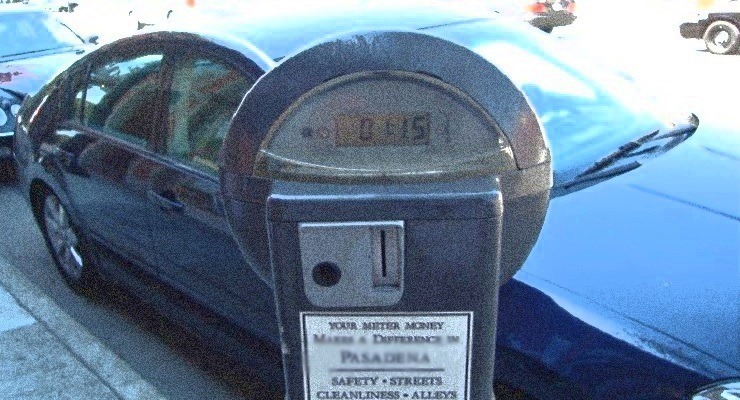 To Political Candidates, Ballot Measure Campaigns, the Democratic Party, and Labor Unions in California:
To Political Candidates, Ballot Measure Campaigns, the Democratic Party, and Labor Unions in California:
From major criminal justice reform ballot measures to electing a new district attorney in Los Angeles County, in the past several election cycles, Black women have been behind the wins of some of California’s biggest political campaigns. But the continued erasure and minimization of our work — by candidates — both Black and non-Black, ballot measure campaigns, the Democratic Party, labor unions, and even the media continues to perpetuate a patently inequitable status quo that is depressing the quality of work across California’s political landscape.
News alert: the white man’s ice is not colder.
Believe it or not, behind the scenes, politics is still dominated by white men. After white men, it’s white women and then men of any race.
If Black female political consultants, strategists, campaign and field managers, communications directors, pollsters and treasurers had a dollar for every time a political candidate or ballot measure campaign said they only hired the white boys because they wanted to be taken seriously and look good, those Black women be a dollar closer to closing the gap between them and the white boys who on average get paid 100 percent more than they do for the same work on political campaigns.
And while it may hurt hearing that the white boys make political campaigns look more legit, it doesn’t hurt nearly as much as when it’s being said to you by a Black political candidate trying to stay relevant.
Fun fact. Many elected officials push businesses to hire women and People of Color but don’t adhere to their own advice when it comes to their own campaigns. And if they do, it’s to make phone calls and knock on doors — not to run the campaign, be the campaign treasurer, conduct the polls or run the field.
Everyone loves to talk about the money in politics, but not everyone knows where that money goes. It overwhelmingly goes to TV, radio, mail, and digital advertising — and to the consultants who place those media buys. Now that is usually done through a campaign directly or via special interests groups who, in California, can spend as much as they like mounting their own campaigns called “independent expenditure committees” to praise or trash candidates and support or oppose ballot measures.
The money paid for political advertising is typically negotiated into the contracts of a campaign’s General Consultant for 10–15% of the overall media buy. That markup compensates the General Consultant for the “heavy lifting” of writing a two-page commercial script, having junior staff layout a mailer in Adobe InDesign, and spending hundreds of thousands of dollars of someone else’s money — quite possibly yours if you donated to the campaign. This also happens through cozy relationships and quick transactions with ad sales reps at cable and radio stations, newspapers, and websites.
The markup usually excludes production costs, which means it doesn’t go toward paying the crew, graphic designers, voiceover talent, and certainly not the unpaid extras who contribute significantly to the end product you see on TV or online. Nor does it go to the campaign manager or communications director, who gets paid a flat monthly fee that does not include a percentage of the ad spend.
Next time you watch a political campaign commercial or look at the mountains of glossy mail pieces on your coffee table (or in your recycling bin), ask yourself who just bought themselves a new Tesla with the $150,000 a million-dollar ad buy netted a savvy and usually white General Consultant.
This is the part where someone might just be foolish enough to say there just aren’t any qualified Black women in this business or that they’ve tried to find one but couldn’t.
The no-qualified-candidates myth, when it comes to Black people, is as laughable in California politics as it is in any other industry. We just haven’t called it out. That ends now.
And hiring the same Black person or having that one Black person in your organization is just as bad as using the “Some of my best friends are Black” defense.
Black women have managed multi-million dollar budgets (the six-figure commissions of which too often went to non-POC general consultants) and played leading roles in some of the most impactful campaigns in recent cycles. And they’ve won — big.
A Black woman who is a former union leader advised now Vice-President Kamala Harris. Another Black woman is largely responsible for getting Holly Mitchell elected to the L.A. County Board of Supervisors. L.A. might still have Jackie Lacey as their district attorney if it weren’t for the work of a Black woman on George Gascon’s campaign. Having worked on dozens of political campaigns as a strategist, another Black woman flexed her muscles helping to lead the first community-driven criminal justice reform ballot measure in L.A. County to victory in 2020 developing a blueprint for similar measures. In Oakland, a Black woman-led Mayor Libby Schaaf’s successful 2014 mayoral campaign. She did this after serving as the California political director for Organizing for America.
We could go on and on with the contributions of Black women to political campaigns in California. Black women seldom — if ever — get the credit they are rightfully owed.
If they and other Black women political consultants, strategists, campaign and field managers, communications directors, pollsters, and treasurers are not on your speed dial and the top of your hiring list, they need to be.
Don’t just use us on your mailers, to make phone calls, and knock on doors for you.
The uprisings of 2020 in many ways forced political candidates, the Democratic Party, and labor unions to address racial injustice and to incorporate criminal justice reform into their platforms. We also saw a record number of ballot measures on the state and local level aimed at bringing police reform, criminal justice reform, and the decriminalization of drugs.
Millions of dollars were poured into all of the ballot measures from both sides. And while it was People of Color whose votes passed many of these landmark propositions, very few — if any — People of Color were hired as the General Consultant or strategist on these campaigns. No, they were relegated to lesser and lower-paying positions that were responsible for the heavy lifting. This, all the while “the white boys” who know nothing about criminal justice reform or our communities and are largely responsible for the reforms needed today — simply rely on polling from other white boys while laughing all the way to the bank.
Did you know there are consultants, strategists, treasurers, and pollsters who never step one foot into the cities and districts they are running campaigns in? Some just sit up in their ivory tower downtown and make ignorant and at times racist statements about the same people whose money they are taking. This happens because their lived experience doesn’t match the communities whose fates they’re seeking to orchestrate.
We’ve seen it happen time and time again. It’ll probably happen with Governor Gavin Newsom’s campaign leading up to the Sep. 14 recall election. And unless we speak up about this injustice it will happen with the 2022 election cycle.
For donors and voters, before you give a candidate or a campaign your money or your vote, ask them who their General Consultant is and how many Black women — Black people — are in leadership decision-making positions on their campaign.
It’s time that candidates (especially Black candidates), ballot measure campaigns, the Democratic Party, and labor unions acknowledge the essential role that Black women in politics play in the work that is being done on the local and state level. We are tired of the same people taking credit for our work — seemingly with your approval.
This isn’t just about equal pay for equal work. It’s about equal pay for better work and for the work that actually gets the win.
Signed,
Lauren Babb, Chair of California Commission on the Status of Women and Girls
Dr. Ramona Bishop
Atalene Brown, National Congress of Black Women
Taisha Brown, Chair, CDP Black Caucus
Lindsay Bubar, LB Consulting
Jasmyne Cannick, Empowerment Justice Strategie and LACDP Delegate
Ginger Campbell, Registered Voter
Sandi Cook, Political Consultant
Damien Goodmon
Susannah Delano, Close the Gap California
Jamarah Hayner, JKH Consulting
Ftima Iqbal-Zubair, Fatima Iqbal-Zubair for State Assembly 2022
Basil Kimbrew, CA Friends of the African American Community
Irene Kao, Executive Director, Courage California
Teka Lo, Purple Sunrise Agency
Amy Malone, GIC Public Relations
Tina McKinnor, The McKinnor Group
Keisha Nzewi, Trustee, Mt. Diablo Unified School District
Celestine Palmer, Los Angeles African American Women’s Political Action Committee (LAAAWPAC)
Ingrid Palmer, Los Angeles African American Women’s Political Action Committee (LAAAWPAC)
Jacque Robinson-Bailey, JR Consulting
Kolieka Seigle, California National Organization for Women
Barisha Spriggs, CDP Executive Board Member and Delegate
Daryl Sweeney, Political Consultant
Marquita Thomas, Executive Director, Los Angeles LGBTQ Chamber of Commerce
Kellie Todd-Griffin, CA Black Women’s Collective
Nicole Walker
Molly Watson, Board of Black Women’s Democratic Club and Courage California
*In alphabetical order by last name
Got something to say, email Managing Editor André Coleman, at andrec@pasadenanowmagazine.com














 0 comments
0 comments


